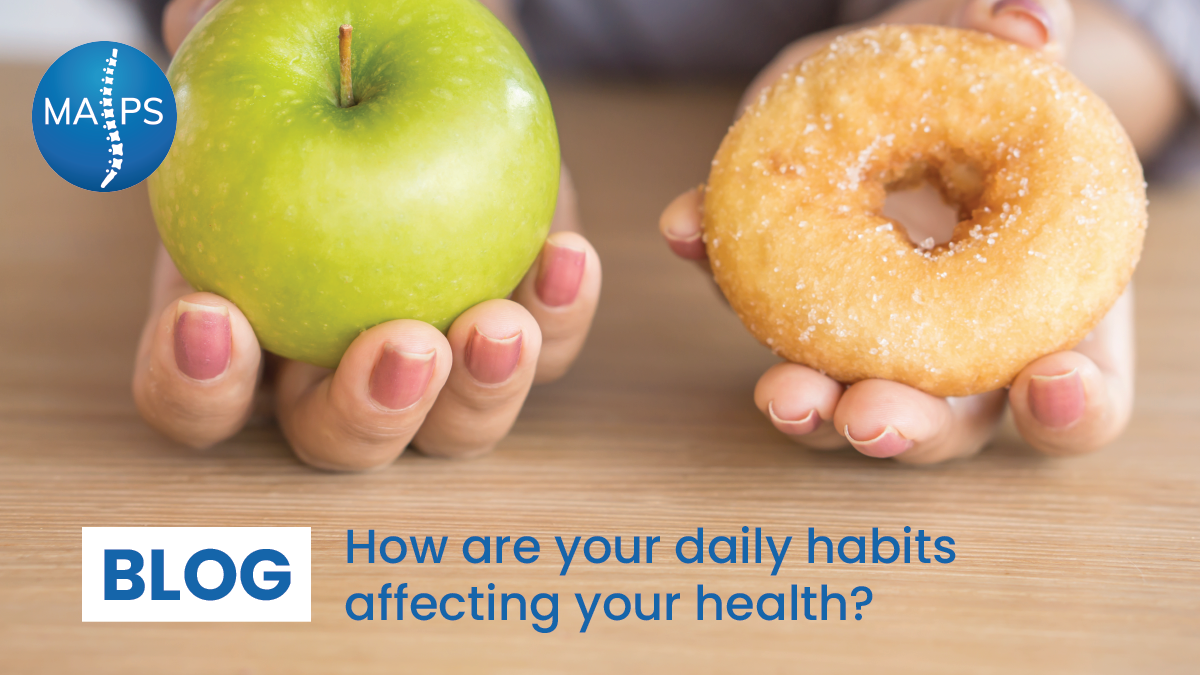How Are Your Daily Habits Affecting Your Health?


The age-old adage stating, “humans are creatures of habit,” might be an understatement when it comes to our daily routines. According to research by Dr. Wendy Wood, Ph.D., a psychologist at the University of Southern California, a stunning 43% of everyday actions are performed without even thinking about them, making wanting to adopt a healthy lifestyle all the more challenging. So which bad habits are harming our health, and what are some tricks for forming new ones?
What are Habits and How are They Formed?
Actions or behaviors are typically adopted in response to a trigger, which leads to results—for example, we feel hungry, eat, and are satisfied. So, by performing the same actions often enough, we create neural pathways in the brain that support quick solutions to our needs. So, while we may believe that we’re making decisions or exerting willpower, our behavior is actually just on repeat. Unfortunately, this system of learning works for daily habits that are detrimental to our health, as well as those that are helpful and balancing. In addition, these behaviors can become so ingrained that positive changes in attitude and intention could have no impact on them.
Habits Challenging to Healthy Living
We can easily recognize habits that are immediately harmful to health, but there are plenty of daily habits that, over time, can result in significant health challenges including:
Mindless Eating
When we’re distracted by tech, we tend to consume our meals rather than be nourished by them. Mindless eating leads to bigger bites that challenge digestion, missing satiety clues which contributes to overeating, and snacking out of boredom instead of eating to satisfy hunger.
Sedentary Living
As much as a daily walk, trip to the gym, or taking a yoga class is a habit, spending too much of your time sedentary can also be a habit and can contribute to challenges like increased joint pain and a doubled mortality risk.
Burning the Midnight Oil
While it may seem harmless to stay up for the extra re-runs or to scroll through your favorite media sites at night, staying up after 10pm compromises healthy sleep patterns and rest required for physical and mental regeneration. Chronic sleep deprivation (less than seven hours nightly) can compromise the cardiovascular, endocrine, immune, and nervous systems, contributing to a range of health challenges from obesity and diabetes to heart disease, mood changes, and alcohol use.
Best Ways to Change Habits for Healthy Living
Fortunately, new research is helping us hack our daily habit tendencies to make healthy lifestyle choices with the help of mindfulness:
Change Your View
When it comes to habits, context cues like location are incredibly impactful. For example, have the habit of stopping for take-out on the way home? Take a different route to break the mindless action; according to Wood, the more often a behavior occurs within a specific location, the stronger the habit can become.
Add the New to the Old
Instead of struggling to drop old habits, consider adding new elements to make healthy living changes. For example, do you regularly drink wine to close out the day? Add a relaxing cup of chamomile or marshmallow root tea first, and write about your day to decompress. Creating a shift in this feedback loop will bring awareness to your triggers and may sway your desire to follow up with the wine.
Plan Ahead
Busy lives consume our mental, physical and emotional bandwidth. When we’re drained, we have less willpower to make effortful decisions, which can drop us right back into “easy” yet harmful habits. So, if you anticipate a stressful day ahead, plan accordingly to accommodate. Perhaps a morning walk will help you get in your steps, while meal preparation can keep you on a healthy track and clearing your evening schedule can lead to much-needed rest.
Is it Time to Make Your Health a Priority?
At MAPS Centers for Pain Control, we understand that achieving better health and wellness depends on the proper support and a comprehensive approach. We care about our patients and take the time to understand their individual challenges and needs to create a treatment plan tailored to help them feel their very best. Learn more about our services and how we can support you in a pain-free life by calling today!

